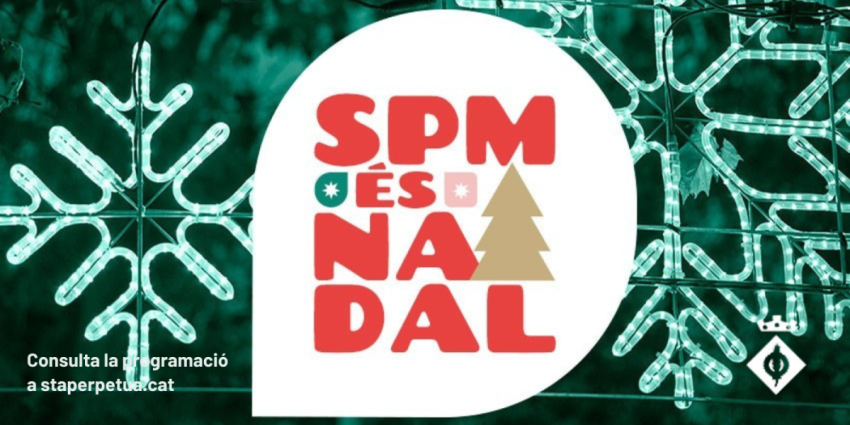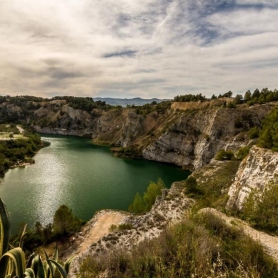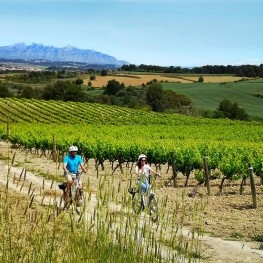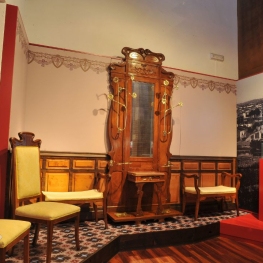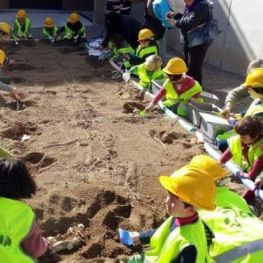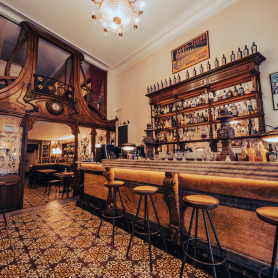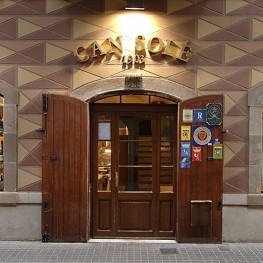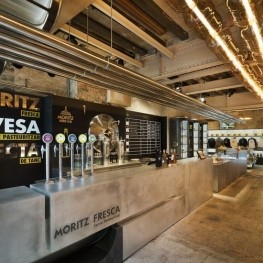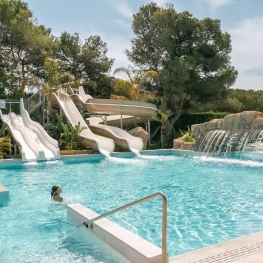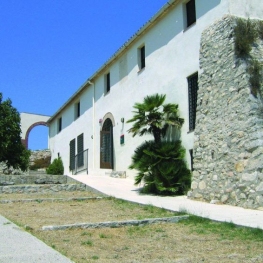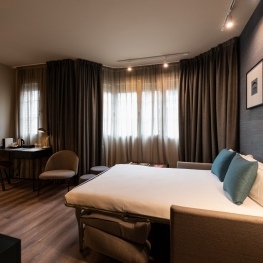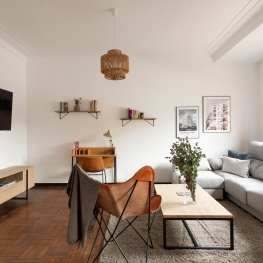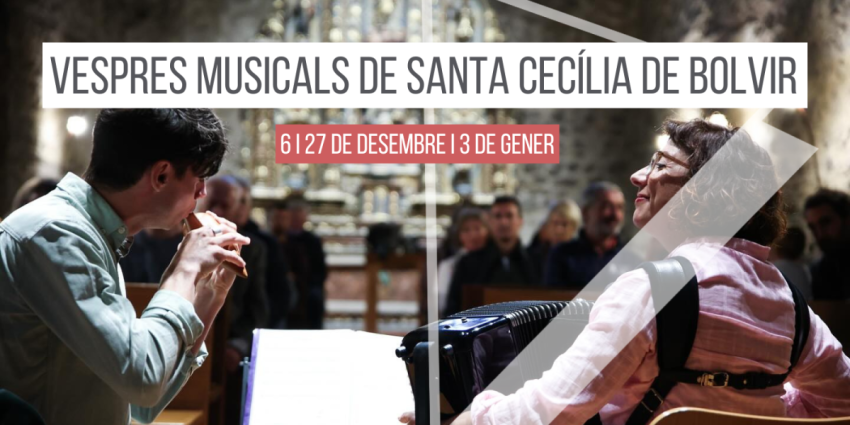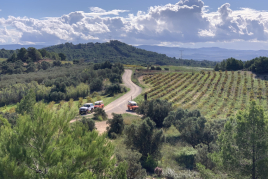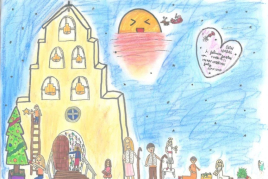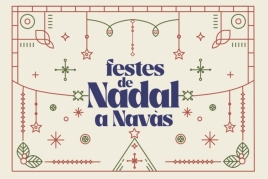Modernism in Vilafranca del Penedès
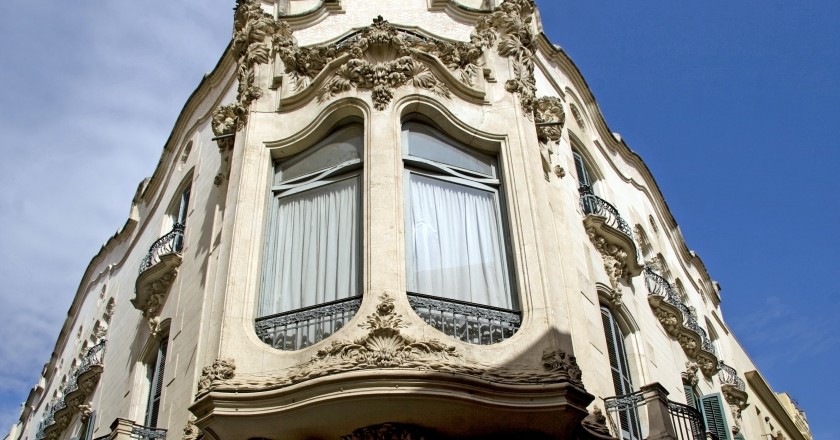
Vilafranca del Penedès, in the center of the Penedès regions, stands out for the strong link to the cultivation of the vine, currently highlighted with the Penedès Designation of Origin. The ups and downs of this product have meant highs and lows for the Penedès economy, which Vilafranca's architecture echoes. From the years of strength of the late nineteenth and early twentieth centuries comes a modernist legacy implanted by rich farmers and merchants.
A historical note
 Phylloxera was a turning point for Catalan agriculture. A small American insect 1mm long swept through the Catalan vineyards, as it had been doing for decades in the rest of Europe. What had been the star product of the Catalan economy, wine and brandy, was the reason for a serious impoverishment and employment change in society. Only a few brave people replanted their fields with vineyards from America, resistant to the insect and to develop successfully. Rich and enterprising who introduced the artistic tendencies of the rest of Europe making Vilafranca del Penedès an important center of modernist tendencies.
Phylloxera was a turning point for Catalan agriculture. A small American insect 1mm long swept through the Catalan vineyards, as it had been doing for decades in the rest of Europe. What had been the star product of the Catalan economy, wine and brandy, was the reason for a serious impoverishment and employment change in society. Only a few brave people replanted their fields with vineyards from America, resistant to the insect and to develop successfully. Rich and enterprising who introduced the artistic tendencies of the rest of Europe making Vilafranca del Penedès an important center of modernist tendencies.
Walk through vilafranquino modernism
 Of the thirty modernist buildings that we can exchange to Vilafranca we will highlight those most interesting, but be aware that in many of the downtown streets we can find a curious and interesting balcony or facade to look at.
Of the thirty modernist buildings that we can exchange to Vilafranca we will highlight those most interesting, but be aware that in many of the downtown streets we can find a curious and interesting balcony or facade to look at.
We will begin the walk through the southwestern part of the town, on Hermenegildo Street where at the end of the street, on the right hand side and on the corner, is the Casa Fuente-Redonda (1903), by Antoni Serrallach, currently its County Council. They emphasize the wrought iron of the bars of the balconies with natural motifs and a huge stained-glass window of arc, of colors and floral elements. By appointment, you can visit the interior of the building.
 Turning left on San Bernardo Street we find the Nogués House of an unknown author and dated in the twentieth century, but with unique modernist elements in Vilafranca. Following this narrow street we will reach the square of the church of Santa María, around it we find wrought iron street furniture and stained glass windows, like a pair of street lamps. Inside the Gothic church, I highlight seven sinuous and expressive marble figures representing the Descent from Christ, dated 1916 and the work of Josep Llimona.
Turning left on San Bernardo Street we find the Nogués House of an unknown author and dated in the twentieth century, but with unique modernist elements in Vilafranca. Following this narrow street we will reach the square of the church of Santa María, around it we find wrought iron street furniture and stained glass windows, like a pair of street lamps. Inside the Gothic church, I highlight seven sinuous and expressive marble figures representing the Descent from Christ, dated 1916 and the work of Josep Llimona.
Continuing to the Sant Jaume square and the Consejeros street, we will find three houses, works by San tiago Güell Grau, the most recognized modernist author of the city, who with different years of construction, from 1905 to 1914, show the evolution of his style and ability. Following the work of this teacher we go to Valle del Castillo street where we find the old market, now Casa de la Fiesta Mayor (1913) that introduces the brick seen, very characteristic element of modernism and that inside there is the dragon of Vilafranca, the oldest and most characteristic figure of the traditional Catalan bestiary.
Finally, following Santiago Güell Grado we will find Parellada street, in the center of the city, to visit the Guasch Estadella House (1905) with a strong role of natural elements in relief and with a majestic balcony on the first floor. Currently an upper floor of a completely modern character has been built. And Casa Tomás (1879-1913) with many individual balconies on the second floor and large windows to the third.
 If we go to the town square, called "the most castellera" for being where the tallest buildings are erected throughout the castellera season, we can appreciate the facade of the City Hall by the hand of the architect Eugenio Campllonch Parés. Apart from the elements of modernism, with natural connotations and wrought iron very worked, highlights the clock framed by garlands of classicist flowers and fruits. From the same architect we find the Jané Alegret House and Hay Guardiet Building (1909) on the street of the Court, the building highlights the crown at the top of the facade and the stand that stands out in the chamfering window.
If we go to the town square, called "the most castellera" for being where the tallest buildings are erected throughout the castellera season, we can appreciate the facade of the City Hall by the hand of the architect Eugenio Campllonch Parés. Apart from the elements of modernism, with natural connotations and wrought iron very worked, highlights the clock framed by garlands of classicist flowers and fruits. From the same architect we find the Jané Alegret House and Hay Guardiet Building (1909) on the street of the Court, the building highlights the crown at the top of the facade and the stand that stands out in the chamfering window.
To finish the route through the center of Vilafranca and returning to works by Santiago Güell we will go to Rambla Nuestra Señora, where we highlight Casa Miró Inglada and Casa Artur Inglada (1905) and Casa Elías Valero, Casa Berger Balaguer (1910), currently his of the Caixa Penedès Foundation, of the first we highlight the asymmetric facade and the lowered arched windows and of the second the medievalist style, broken with modernist details, both have the floral theme, very typical of its author. With similar characteristics we find a single-family house on Calle del Casal, perpendicular to the Rambla, Casa Galtés Mainé and Bodegas Mascaró (1912).
Although current, traditional fairs and festivals in Vilafranca
 We cannot talk about Vilafranca without making a stroke of the important role of traditional festivals and fairs that are currently the leading Spanish casteller group, Castellers de Vilafranca and the oldest figure of the Catalan bestiary, the dragon, which lately She has dated the twelfth century.
We cannot talk about Vilafranca without making a stroke of the important role of traditional festivals and fairs that are currently the leading Spanish casteller group, Castellers de Vilafranca and the oldest figure of the Catalan bestiary, the dragon, which lately She has dated the twelfth century.
The most marked dates are the Feria del Gallo, the Feria de Mayo, the ViJazz. the Fiesta del Xató and the Fiesta Mayor at the end of August, declared a festival of national interest. In these festivities, traditional culture entities such as bastoners, ribbon dances, cercolets, dwarfs, devils, an exact replica of the SXII dragon or the muixiganga, recently recovered , are often taken to the streets. A show full of music, dances and colors where a large number of neighbors participate and that runs through the streets of the city center.
Places to discover near Vilafranca
 For lovers of modernism Vilafranca is not the only corner of the Penedès where we find buildings of this style, at least a dozen nearby villas we find some building to highlight, some of them as Can Raspall dels Horts (1909) by the architect Antoni Pons and Dominguez and located on the Vilafranca road in Igualada, large and located in the middle of nature, to a unique place.
For lovers of modernism Vilafranca is not the only corner of the Penedès where we find buildings of this style, at least a dozen nearby villas we find some building to highlight, some of them as Can Raspall dels Horts (1909) by the architect Antoni Pons and Dominguez and located on the Vilafranca road in Igualada, large and located in the middle of nature, to a unique place.
We recommend Sant Sadurní d'Anoia and Gelida from these Penedès towns near Vilafranca. Taking the AP-7 motorway towards Girona, we will reach Sant Sadurní d'Anoia where at least eight buildings, both public and private, stand out. Among them the well-known Codorniu and Freixenet caves located slightly outside the city and the Town Hall, the Agricultural Athenaeum and the new schools, right in the center. Following the same highway to the north we will arrive at Gelida, where eight more buildings, almost all private and located in the center, will allow us to appreciate more facades, balconies and ornaments typical of Catalan modernism of the early twentieth century.
What to do
Bikemotions, enoturisme al Penedès
Subirats (a 3.8 Km)Different proposals to enjoy the Penedès pedaling through vineyards and discovering small…
Museu Castell de Rubí
Rubí (a 14.7 Km)The Castell Municipal Museum aims to exhibit and disseminate the city's history…
Paleoturisme a Hostalets de Pierola
Els Hostalets de Pierola (a 12.5 Km)The Hostalets de Pierola is one of the most important paleontological areas…
Where to eat
Bodega Miquel Jané
Font-rubí (a 9.7 Km)Discover the world of wine with our comprehensive viticulture and oenology courses,…
Bar Muy Buenas
Barcelona (a 26.2 Km)Few words better define Muy Buenas than "coherence." Purely modernist decor, restored…
Fàbrica Moritz Barcelona
Barcelona (a 25.8 Km)The Moritz Factory Barcelona is a unique space, divided into three floors,…
Where to sleep
Garrofer Green Camping
Sitges (a 14.5 Km)Come to Garrofer Green Camping and enjoy a unique vacation in a…
Casa de colònies Can Grau, Fundesplai
Cubelles (a 12.6 Km)Discover Can Grau, an old wine-growing farmhouse from the 16th century. XIV…
Atenea Rekord Suites
Barcelona (a 23.6 Km)The Atenea Rekord Suites Barcelona is a boutique hotel with 15 modern…
AB Apartment Barcelona
Barcelona (a 25.6 Km)AB Apartment Barcelona is an agency specializing in short and monthly apartment…

